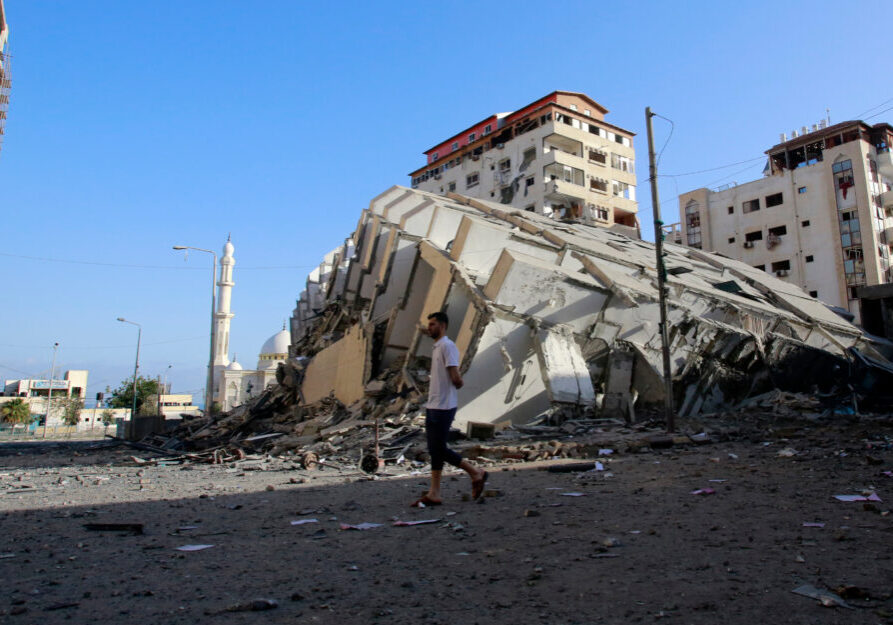Australia/Israel Review
Editorial: The ISG?s Unrealism
Jan 1, 2007 | Colin Rubenstein
Colin Rubenstein
The ISG’s Unrealism
The bipartisan Iraq Survey Group (ISG) report to US President Bush set out the grim reality of the situation in Iraq and made some plausible, even if predictable and contested, recommendations about military strategy there. However it also includes two recommendations about wider Middle Eastern policy that are fundamentally flawed.
Happily, there are signs that US President Bush recognises these flaws in the ISG proposals, and is reportedly seeking additional advice about how to improve the situation in Iraq without making the counter-productive steps urged by the ISG panel.
The ISG report repeated the tired old saw that the Israel-Palestinian conflict is central to disorder in the Middle East, and called for a new push to resolve it.
Further, former Secretary of State James Baker and his colleagues would have us believe that Iran and Syria can be induced to stop promoting sectarian violence in Iraq through positive “incentives” and high-level negotiations without preconditions.
The logic behind this argument – that Iran and Syria have an interest in preventing the complete descent into chaos of neighbouring Iraq – is wrong.
The Iranian regime is not motivated by the hard logic of cost-benefit analysis that international relations “realists” like Baker think reign supreme. Iranian President Ahmadinejad claimed a divine halo appeared around his head when he spoke at the UN, and has repeatedly proclaimed his faith that a global cataclysm will be a precursor to usher in the imminent era of the “Mahdi,” the Shi’ite messiah.
Iran, motivated both by Islamic messianism and Persian nationalism, is currently on a mission with its Syrian ally to gain hegemonic control of the Middle East, a goal that the leadership talks about quite openly. Having the US bogged down and Iraq out of the Middle East equation serves their purposes.
Their price for any conceivable assistance in Iraq is likely to be unacceptably high – assent to Iran’s illegal nuclear weapons program, a blind eye to both states’ support for terrorism, including sponsorship of a pro-Iranian rejectionist regime in the Palestinian Authority, Syrian control over Lebanon restored, the unilateral return of the Golan Heights to Syria, and a right to a dominant Iranian-Syrian role in Iraq. This would effectively give Teheran the regional hegemonic role it is seeking, as other players read which way the wind is blowing and jump on board.
Further, even if Teheran and Damascus came to an agreement with the US, it is unclear these states could be much help in Iraq, where the violence has a dynamic all of its own, even without the support Teheran and Damascus have been providing.
And, Baker’s view of the Israel-Palestinian peace process is replete with misperceptions. How can it be argued that Sunnis and Shi’ites slaughtering each other and Americans in Iraq find motivation in the Israel-Palestinian issue?
The belief that forcing additional Israeli concessions will lead to the holy grail of wider Middle East peace is a dangerous pipe-dream based on badly flawed misreading of the region’s political map.
It isn’t Israeli intransigence that is blocking a Palestinian state. Israel offered the Palestinians a state in 2000, and hasn’t changed its policy since. All Israel required then – as now – is peace and acceptance in return. Even the traditionally hawkish Ariel Sharon said as much on several occasions. Current Prime Minister Ehud Olmert was elected with a mandate to give the Palestinians a state, even without peace in return. This remains his goal, as he made clear in his speech at Sde Boker in early December.
Baker’s confusion stems from the widespread Western tendency to insist on seeing the conflict as territorial – “land for peace”. Islamists see the conflict existentially. Compromise over Palestine, regarded as Islamic Waqf, a religious trust, is out of the question for religious reasons, so peace with Israel can never be contemplated.
The current Hamas government of the Palestinian Authority is part and parcel of this trend, which finds much of its inspiration in Teheran. As Palestinian Prime Minister Ismail Haniyeh recently said whilst in Iran, “we will never recognise the usurper Zionist government and will continue our jihad-like movement until the liberation of Jerusalem.”
Further, even if yet more Israeli concessions could sate Palestinian Islamist demands, solving the Arab-Israel conflict would do nothing to eliminate the economic and political deficiencies of the Arab and Muslim states. A near-total lack of civil and human rights – such as freedoms of religion and expression, or women’s and minority rights – would remain standard practice and contribute to extremism.
If players in the West have been divided as to the meaning of the ISG’s findings, radical forums of the Arab world have been near uniform in triumphant response. A Palestinian Islamic Jihad leader opined, “the Report proves that this is the era of Islam and of jihad.” An Egyptian daily suggested that Arab countries should “capture the moment as America is now in its weakest period.” The Syrian Foreign Ministry, for its part, is ecstatic that America sees the lack of Israeli peace with its neighbours as the core problem.
Well-intentioned outsiders, who adopt the rejectionists’ rhetoric that the region’s problems are the fault of Israel, are actually making peace more remote by helping strengthen these forces.
We have said it before, but it remains true. Peace is urgently needed, but it will only come when the currently resurgent radical rejectionist forces, represented at the moment by an axis of Iran, Syria, Hezbollah and Hamas, are defeated and weakened. You cannot achieve the opposite – weaken the radicals by making unilateral peace concessions – because the radicals do not want peace and can easily sabotage any effort made.
![]()
Tags: Iraq






